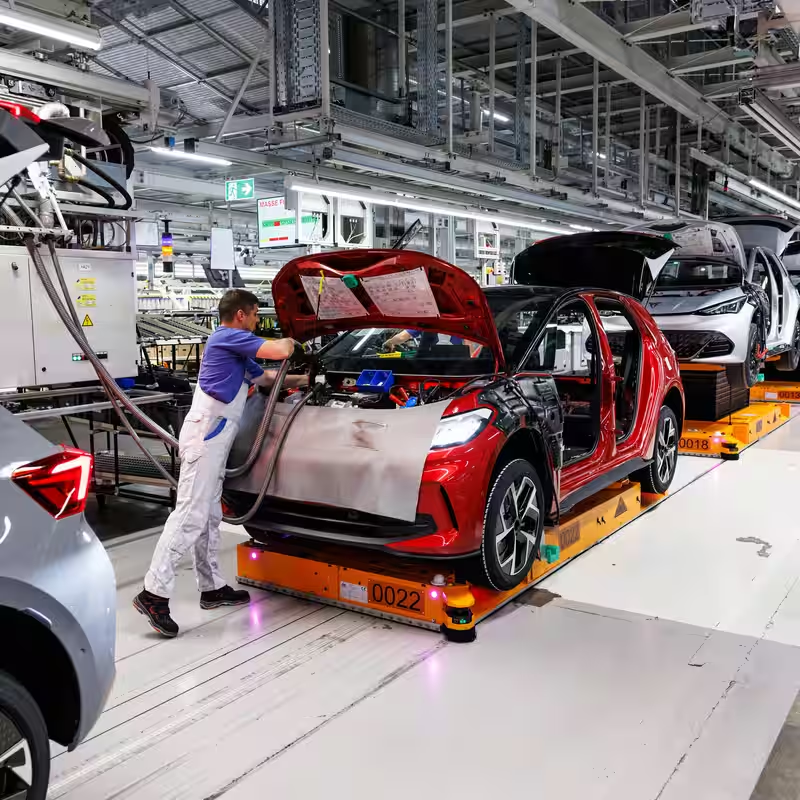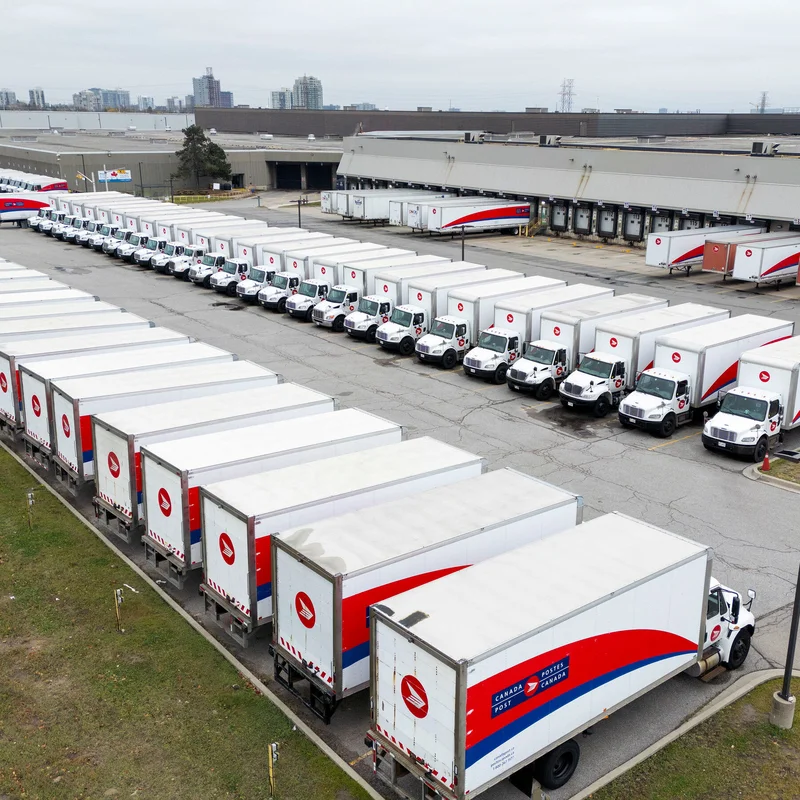Volkswagen, Europe’s largest automaker, is sounding the alarm. The company has reported a staggering $1.5 billion operating loss for the third quarter of 2025, a shocking reversal of fortune driven by a brutal one-two punch: crippling new tariffs and a sudden, severe shortage of critical semiconductor chips .
Volkswagen Loss: A Perfect Storm of Global Pressures
Just a year ago, the automotive industry was celebrating the end of the global chip crisis. Now, it’s back with a vengeance. A recent disruption at a major European semiconductor supplier, Nexperia, forced Volkswagen to halt production of its best-selling Golf and Tiguan models at its flagship Wolfsburg plant for an entire day in late October . This single event is a stark symbol of the fragile state of the modern auto supply chain.
Compounding this operational nightmare are new trade tariffs that have significantly inflated the cost of doing business. These tariffs, part of an escalating global trade dispute, have directly eaten into the company’s profit margins, contributing heavily to the massive quarterly loss .
Inside the Numbers: A Financial Deep Dive
Despite the headline-grabbing loss, Volkswagen’s financials reveal a complex picture. Total sales revenue actually inched up by 2.3% year-over-year to a solid €80.3 billion . This shows that demand for its vehicles remains strong, but the company is simply unable to convert that demand into profit under current pressures.
The pain was not felt equally across all divisions. The company’s Financial Services arm saw a remarkable 40% improvement in its operating result, reaching €3.1 billion . However, this bright spot was completely overshadowed by a catastrophic 46% decline in the Commercial Vehicles segment, which posted an operating result of just €1.7 billion .
| Volkswagen Q3 2025 Performance | Result | YoY Change |
|---|---|---|
| Operating Loss | €1.3 Billion ($1.5B) | Massive Decline |
| Sales Revenue | €80.3 Billion | +2.3% |
| Commercial Vehicles Result | €1.7 Billion | -46% |
| Financial Services Result | €3.1 Billion | +40% |
Volkswagen Chip Shortage: A New Chapter in an Old Story
The return of the Volkswagen chip shortage is particularly alarming. After years of navigating the pandemic-era scarcity, the industry had hoped for stability. The recent shutdown at the Wolfsburg facility is a clear warning that the supply chain remains vulnerable to single points of failure . While the company insists the shortage hasn’t yet impacted its German factories on a large scale, the warning is clear: the risk is real and present .
This new shortage threatens to derail Volkswagen’s ambitious electrification plans. Building its new ID. series of electric vehicles requires a far greater number of advanced semiconductors than traditional combustion-engine cars. Any prolonged disruption could delay its crucial transition to a sustainable future.
What’s Next for the German Auto Titan?
Volkswagen has maintained its full-year guidance, a show of confidence in its long-term strategy. However, the company is now in a race against time. It must navigate the tariff minefield, secure its semiconductor supply, and manage its costs—all while its core business bleeds cash.
Investors and industry analysts are watching closely. The question on everyone’s mind is whether this $1.5 billion loss is a temporary setback or a sign of deeper, systemic challenges facing the entire European automotive sector in an increasingly volatile global economy.
Sources
- The New York Times: Volkswagen, Hit by Tariffs, Reports $1.5 Billion Loss and Warns of Chip Shortage
- Volkswagen Group Q3 2025 Financial Results
- Volkswagen AG (VLKAF) Q3 2025 Earnings Call Transcript




